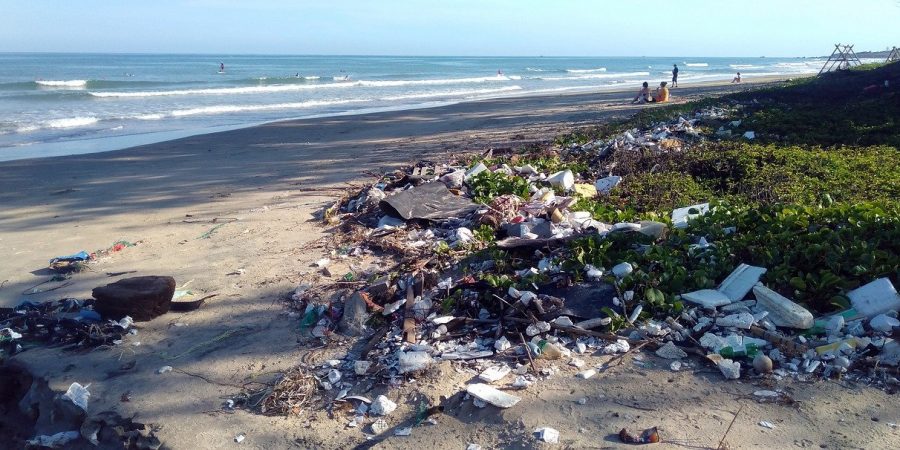It’s been a rubbish year by all accounts, what with a global pandemic and all of our favourite venues, pubs, and restaurants closing their doors for extended periods of time. We definitely don’t need to be adding more rubbish to 2020, but with fly-tipping potentially increasing by up to 70% this year, it seems like this could very well be the case.
The start of lockdown earlier in the year, coupled with a wave of furloughed workers, saw many an overdue home project getting underway. Alas, with all these renovations came a lot of waste, and not everyone was as responsible with their waste removal as they ought to have been. With fly-tipping surging during lockdown, many first-time offenders may have assumed dumping their waste near to a closed recycling centre was harmless enough. In this article, we show just how wrong that mindset is…
Fly-tipping harms wildlife
There are a number of ways in which fly-tipping can harm animals. We’re all familiar with the awful images of birds trapped in plastic beer rings or tangled in burnt-out party lanterns, but it’s not just litter that can cause such damage. Piles of fly-tipping can present numerous hazards to wildlife, from sharp objects physically wounding a creature to viruses and bacteria on fly-tipped food and such being consumed by animals and spread further afield.
This latter point is a particular concern in the current climate, with the spread of COVID-19 counted among the potential viruses that fly-tipping can carry. From discarded coffee cups of asymptomatic carriers to simply existing on the surface of fly-tipped materials, animals such as foxes and birds can easily become infected while burrowing and investigating fly-tip piles. Through licking garden surfaces or via their faeces, these creatures can spread the virus to household pets and humans.
The only creature that loves fly-tipping: rats
Naturally, fly-tipping encourages rats. But for selfish people who may think this doesn’t concern them, given they have offloaded their rubbish away from their homes, think again.
Many areas across the UK have seen a spike of fly-tipping in lockdown, and reports are flooding in from everywhere, from Scotland to Middlesbrough to Bolton of the rising rat problem as a result. Bolton in particular has reported how this staggering increase in fly-tipping has led to bold rats breaking into houses in the area.
It’s no secret that rats are a problem when it comes to transmitting diseases to humans, so again, in this COVID-19 world we’re living in, we really don’t want to be encouraging rats closer to anyone’s home! But beyond diseases, rats can also cause structural damage to buildings due to their habitual gnawing.
Just like with fly-tipping, a rat isn’t going to disappear on its own, so reporting an infestation is vital.
We’re all paying for it: fly-tippers and non-fly-tippers alike!
Fly-tipping might look like a tempting, free option to waste removal, but in truth, it’s far from it. That’s because we all end up paying for its handling and removal—through our taxes.
Beyond the simple need for councils to remove dumped waste, perhaps you hadn’t considered other issues that fly-tipping can cause that puts a strain on our community resources. For example, it’s common for fly-tippers to attempt to burn their discarded waste, or for these piles of rubbish to catch fire by other means.
Burning rubbish can be massively dangerous, as outlined by a recent statement from Cleveland Fire Brigade after a fly-tipping pile was burned twice in one night—area manager prevention Steve Johnson said: “To be called out twice is a complete waste of our resources, especially at a time of lockdown when everyone should be working together to support each other. […] Waste such as plastic, foam, paint, and tyres cause pollution and releases chemicals when it burns. This is harmful to the environment and to health, which is a particular issue during this pandemic when many vulnerable people are self-isolating.”
The immediate danger of burning fly-tipping was also noted by firefighters over in Wales too, after 25 tonnes of fly-tipping was deliberately torched and spread to nearby trees. A spokeswoman for the fire service echoed their Cleveland counterpart’s comments, stating that rubbish fires and fly-tipping a both “extremely dangerous” and “a strain on resources when there could be other emergencies were lives are in danger.”.
Really, it’s cheaper in the long run and far more responsible to use a reputable waste removal company to deal with your rubbish.
Fly-tipping has so many knock-on effects, and we have outlined only a handful of these impacts. When it comes to disposing of your waste, be sure to do so responsibly.
Sources:
https://www.skiphireuk.co.uk/blog/brits-are-sick-of-lockdown-fly-tipping/
https://lovecleanstreets.info/blog/2019/8/5/the-environmental-impact-of-fly-tipping
https://inews.co.uk/news/science/litter-fly-tipping-spread-covid-19-544885
https://www.newcastle.gov.uk/services/environment-and-waste/pest-control/rats
https://www.gazettelive.co.uk/news/teesside-news/rats-over-middlesbrough-its-horrendous-18607398
https://www.thisislancashire.co.uk/news/18666217.fly-tipping-hotspot-led-rats-breaking-house/
https://www.dailyrecord.co.uk/news/scottish-news/cops-forced-guard-illegal-fly-21948053
https://www.clevelandfire.gov.uk/2020/05/fly-tipping-fire-sparks-angry-warning/
https://www.walesonline.co.uk/news/wales-news/fly-tipping-rubbish-fire-st-18386951









